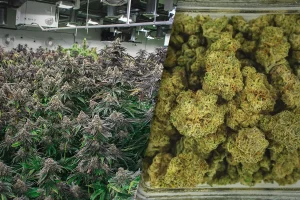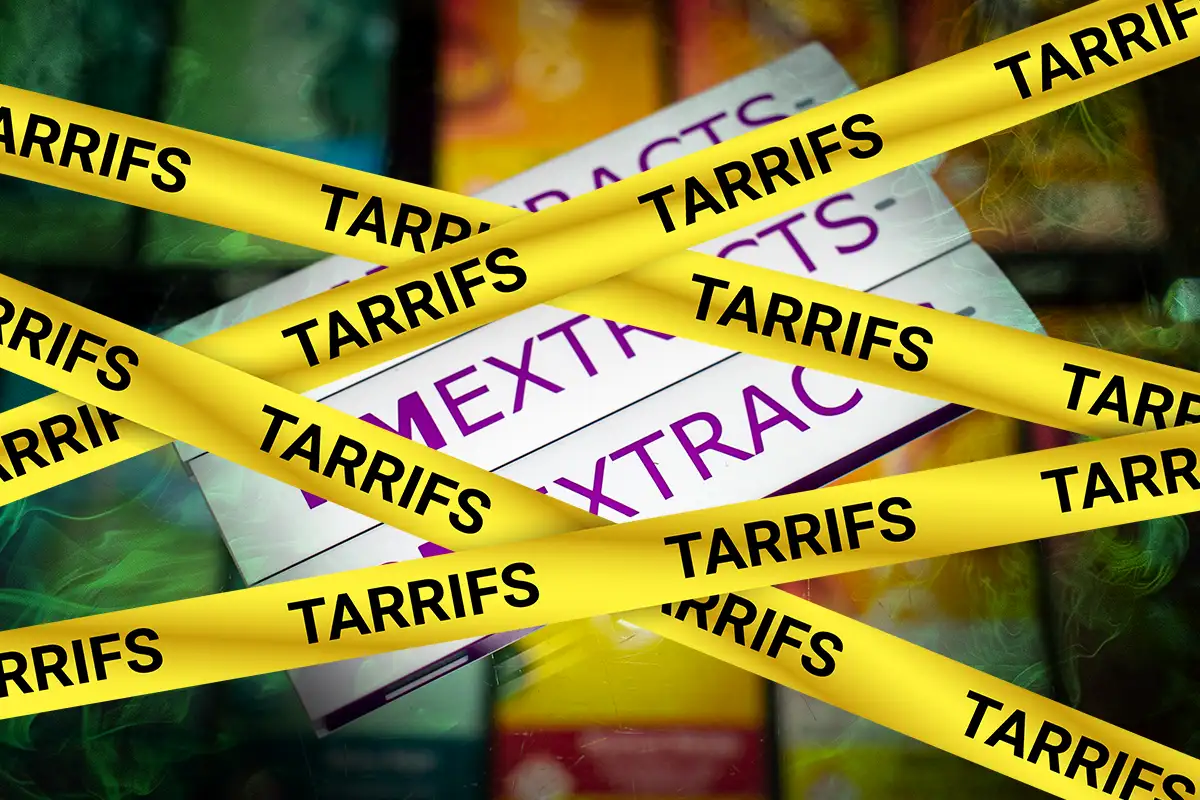
Mastering the Cannabis Harvest: Pro Tips for Cutting, Trimming, Curing, and Storing Your Crop
The harvest season is the most anticipated time for cannabis growers — when months of careful cultivation finally pay off. But cutting down the plants

As the U.S. cannabis industry continues to thrive, driven by expanding state-level legalization and the growth of both medical and adult-use markets, new questions are emerging about how international trade policy, especially tariffs, could affect the future of cultivation and product distribution.
While federal prohibition still limits the international trade of cannabis itself, the U.S. cannabis industry is already deeply intertwined with global supply chains. Many of the essential materials used in cannabis cultivation and packaging are imported, leaving the sector vulnerable to shifting tariff policies. This dependency creates both opportunities and risks as trade tensions fluctuate and economic policy evolves.
Though cannabis remains a domestically grown product due to federal restrictions, much of what’s needed to cultivate and sell it is sourced from abroad:
This reliance makes the cannabis industry particularly sensitive to fluctuations in tariff rates and global trade dynamics—even without any legal exports or imports of the plant itself.
While cannabis remains federally illegal, the industry operates in a legal grey zone where imported materials are freely traded even as the end product is not. This makes trade policy decisions—especially those that broadly impact agriculture or consumer goods—highly consequential for cannabis businesses.
For example, the U.S.-China trade tensions in recent years led to tariffs on certain agricultural chemicals and plastics, which directly affected cultivation costs. Similar disputes could further impact the flow of essential supplies without direct acknowledgment of the cannabis industry’s stake.
Industry advocates argue that any trade policy affecting cannabis inputs must consider the unique challenges of the regulated market. While strategic tariffs could promote domestic innovation and sustainability, they also threaten to inflate costs and stunt growth at a time when many businesses are already operating on thin margins.
In the U.S. cannabis industry, international tariffs don’t affect the flower itself—but they shape nearly everything around it. From the nutrients that feed the plants to the jars that display them on dispensary shelves, global trade remains a silent force in the industry’s success.
As policymakers consider new tariffs or trade agreements, it will be crucial to assess their impact on this rapidly growing and heavily import-reliant sector. In the meantime, growers and manufacturers alike must navigate a landscape where economics, regulation, and geopolitics are increasingly entwined.

The harvest season is the most anticipated time for cannabis growers — when months of careful cultivation finally pay off. But cutting down the plants

Is THCA legal? Explore the fast-evolving U.S. debate over hemp-derived THCA, including industry divide, consumer safety, regulations, economics, and outlook. What is THCA, and why

As cannabis cultivation continues to expand in legal markets, growers are increasingly facing one of nature’s toughest challenges… extreme summer heat. Unlike indoor grow operations

As cannabis becomes increasingly mainstream in the United States, confusion still reigns over the difference between marijuana and hemp, two forms of the same Cannabis

Big changes are blooming at NuVue Pharma — and it’s all good news for your wallet. We’ve heard your feedback and looked closely at how

Despite over half of U.S. states legalizing cannabis for medical or recreational use, federal legalization remains elusive. While public opinion strongly favors reform and the

As the U.S. cannabis industry continues to thrive, driven by expanding state-level legalization and the growth of both medical and adult-use markets, new questions are

Day 1: Clue 1: This game is no trick, to find the Easter Egg you must be quick, get too close today, and I might

In a landmark shift for Colorado Springs, NuVue Pharma is set to commence recreational cannabis sales on April 15, 2025. This development follows a series

Colorado’s cannabis industry is poised for significant changes with the introduction of House Bill HB25-1209, titled “Marijuana Regulation Streamline.” This bill aims to enhance regulatory